Two paths to educational improvement
Regular Stuff columnist Damien Grant is a great friend of The New Zealand Initiative. In fact, he’s a member. Read more

Michael is a Senior Fellow at The New Zealand Initiative. He leads the Initiative’s work on education. He is a cognitive psychologist with a background in literacy research, educational assessment and psychometrics.
Prior to his time at the Initiative, he was the Associate Dean (Academic) of the Faculty of Education at Victoria University of Wellington. Between 2005 and 2011, he worked at the New Zealand Qualifications Authority (NZQA), where he developed a new, more reliable, marking system for NCEA examinations. In 2024, Michael chaired a Ministerial Advisory Group (MAG) for Education Minister Erica Stanford. The MAG advised on the development of a knowledge-rich curriculum for English and mathematics. Following that work, Michael is currently a member of the Curriculum Coherence group, which advises on the development of knowledge-rich curricula across all school subjects. Michael is also a member of a technical advisory group to NZQA on assessment for NCEA and New Zealand Scholarship.
In his time at The New Zealand Initiative, Michael has published reports on Modern Learning Environments, systems reform in education, teacher education, the use of AI in education, and pathways for industry training and apprenticeships.
Phone: 044990790
Regular Stuff columnist Damien Grant is a great friend of The New Zealand Initiative. In fact, he’s a member. Read more
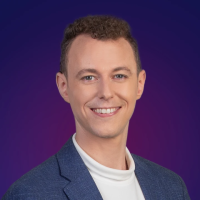
Dr Michael Johnston spoke on RNZ Nights on how New Zealand schools are increasingly adopting Cambridge International qualifications alongside or instead of the national NCEA system, with a 20% increase in Cambridge enrollment in 2024 reaching nearly 8,000 students. The key differences between the systems are that Cambridge relies on end-of-year exams while NCEA focuses on internal assessments throughout the year, with the expert suggesting that while choice is good, New Zealand should ultimately aim to develop NCEA to a quality level that wouldn't necessitate international alternatives. Read more
How should politicians respond if public hospitals decided to stop treating injuries and illnesses? A version of this scenario is playing out in higher education across the English-speaking world. Read more
In this episode, Oliver, Eric and Michael reflect on New Zealand's key policy achievements in 2024, including education reform, housing policy changes, and foreign direct investment liberalisation, while discussing the significant economic challenges facing the country. They explore Ireland's successful foreign investment strategy, necessary reforms to address structural deficits, and New Zealand's position in international trade, ending with optimism about education improvements planned for 2025. Read more
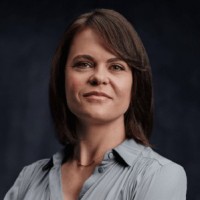
Dr Michael Johnston talks to Heather du Plessis Allan on Newstalk ZB about new government legislation requiring universities to adopt freedom of speech statements and preventing them from taking positions on issues outside their core functions. Dr Johnston says while universities already have free speech obligations, the new legislation will provide needed complaints procedures and could help address what he sees as cultural problems in universities, though it isn't a complete solution. Read more
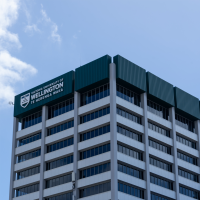
Academic freedom is a hot topic at the moment. The coalition agreement required universities to have academic freedom policies to receive government funding. Read more

To solve a problem, first you have to understand it. Once you understand it, you sometimes realise that it isn’t the same problem you had thought. Read more

In this episode, Michael talks to Travis Brown, a filmmaker who explores how different ideologies can lead to polarisation and dogmatic thinking, drawing from his own experiences in both fundamentalist Christian and leftist circles. The two discuss how growing political division threatens democracy and examine Brown's doco "When in Doubt," which demonstrates how embracing doubt and curiosity can lead to better understanding between people with opposing views, even if they don't ultimately change their minds. Read more

Dr Michael Johnston talks to Sean Plunket on The Platform about Massey University allegedly circulating a banner for staff emails featuring the "2020" logo, which is associated with opposition to David Seymour's Treaty Principles bill. Dr Johnston argues this violates the principle of institutional neutrality and reveals how a university staff member anonymously reported this to the Free Speech Union, though they are still awaiting official confirmation from the university's vice-chancellor. Read more

The Trends in Mathematics and Science Study (TIMSS) runs every four years. It measures Year 5 and Year 9 students in different countries on what they have learned in science and mathematics. Read more
You might think that a national organisation awarding research grants would fund the best proposals. You might even think that funding decisions would be made by experts who can identify quality when they see it. Read more
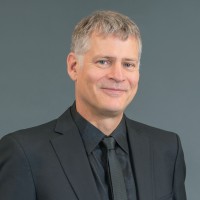
John Gerritsen on RNZ questions whether to keep NCEA Level 1, following an Education Review Office report that calls it unreliable and unclear in purpose. Dr Michael Johnston talks to RNZ saying the entire NCEA system needs review, particularly to create better pathways for students pursuing trades and apprenticeships rather than university. Read more

In this episode, Eric and Michael discuss Australia's proposed law to ban social media for under-16s, examining how age verification would likely require government ID and create serious privacy risks as platforms would need to store this sensitive data. While acknowledging concerns about social media's impact on young people, they argue the Australian approach could enable government surveillance, compromise online anonymity, and create technical challenges that would either be easily circumvented or impose heavy costs on legitimate users. Read more
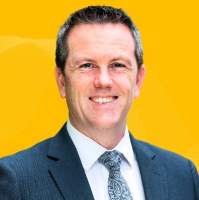
Dr Michael Johnston spoke to Simon O'Connor on Reality Check Radio about the significant challenges facing New Zealand's education system, including curriculum issues, teacher training problems, and declining university standards. He outlined potential solutions including a more structured knowledge-rich curriculum for schools, improved teacher training methods, and addressing free speech concerns in universities, while emphasising the need for both regulatory and cultural changes to improve educational outcomes. Read more
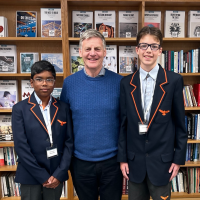
Every Wednesday, New Zealand Initiative staff meet to discuss our columns for the week. It is part of our routine. Read more